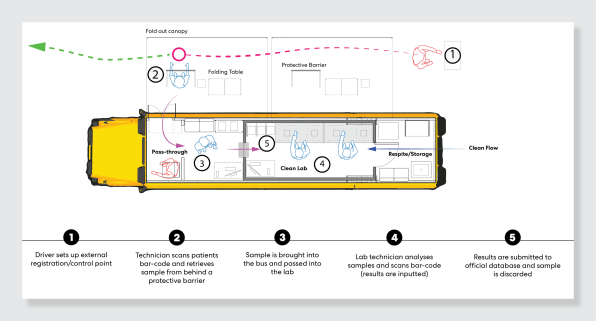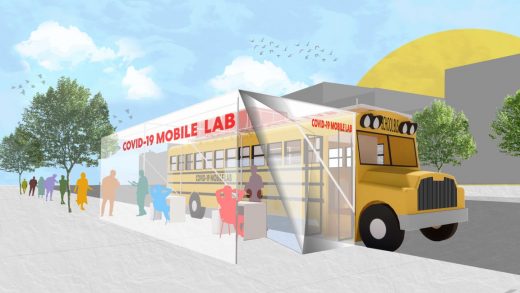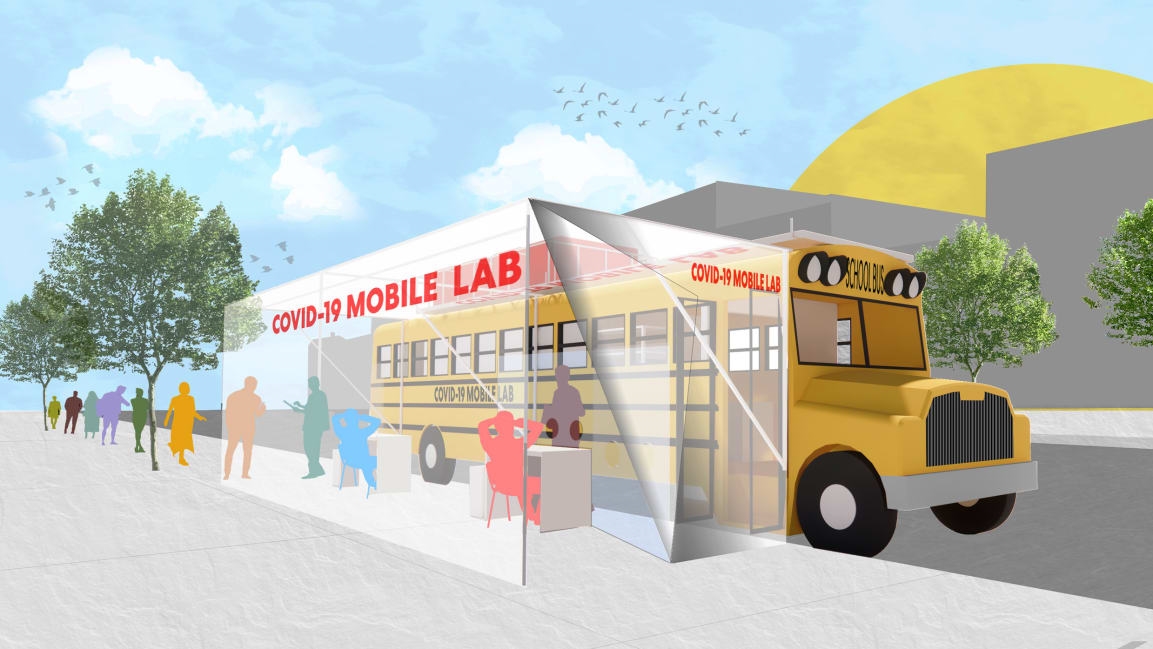We could turn out-of-use school buses into low-cost mobile COVID test labs
In some parking lots across the U.S., long lines of cars now wait each day for drive-through coronavirus tests. But for people who don’t own cars—who often live in the low-income communities that are seeing the worst impacts from COVID-19—it’s harder to access tests.
A new design proposes using a simple kit of parts to retrofit school buses as mobile labs that could travel around cities and rural areas bringing tests where they’re most needed, going beyond what’s currently available. “Our starting point in this was how can we bring [testing] to the community as opposed to making them go to it?” says Mariana Giraldo, a planning and strategy specialist at the design firm Perkins and Will who worked on the new COVID-19 mobile lab along with a team of other designers.
Drive-through tests have advantages to testing in hospitals since people can be more isolated than if they were waiting in waiting rooms, helping prevent those with the virus from infecting others. “But at the same time, it’s not necessarily equitable,” she says. “There are a lot of communities that don’t have cars or that are so dense that it would be impossible to have the speed that we need for the testing.” The mobile lab could also quickly bring tests to nursing homes or remote communities.

Testing at a massive scale—perhaps 500,000 to as many as 20 or 30 million tests a day in the U.S.—is necessary to be able to safely reopen society, so people who are infected can be identified to stop the spread of the virus. And while there are serious supply chain problems and other reasons that fewer tests are happening now, access to testing is one part of the problem.
The designers turned to school buses for the new mobile labs since the buses aren’t in use now, and they can be fairly easily retrofitted with a kit of parts, including generators or solar panels for power. “It’s almost like the Ikea for COVID testing,” says Rob Goodwin, principal and design director at Perkins and Will. “You can have these pieces and you can take a bus, and in an ideal world, in 48 hours you’ve retrofitted this so that it can go out into the community and test people.”
The system would identify neighborhoods at high risk from the virus, and then let patients with referrals from doctors schedule appointments through a mobile app, so they don’t have to wait in long lines. In front of the bus, under a canopy, patients would pass through a registration checkpoint. A technician would take nose and throat samples from each patient, place the samples in biohazard bags, and then bring them inside, where seats have been removed from part of the bus to make room for a small lab. The team envisions that technicians could use a rapid COVID-19 testing platform like the one developed by Abbott Labs, a toaster-size device that delivers results in minutes.
The designers are now beginning to talk with potential partners about retrofitting buses for a pilot. They’re also freely sharing the design. “It really is all about creating a solution, not owning it,” Goodwin says. “So we put this out in the public domain already, because we just want it to happen.”
(5)



